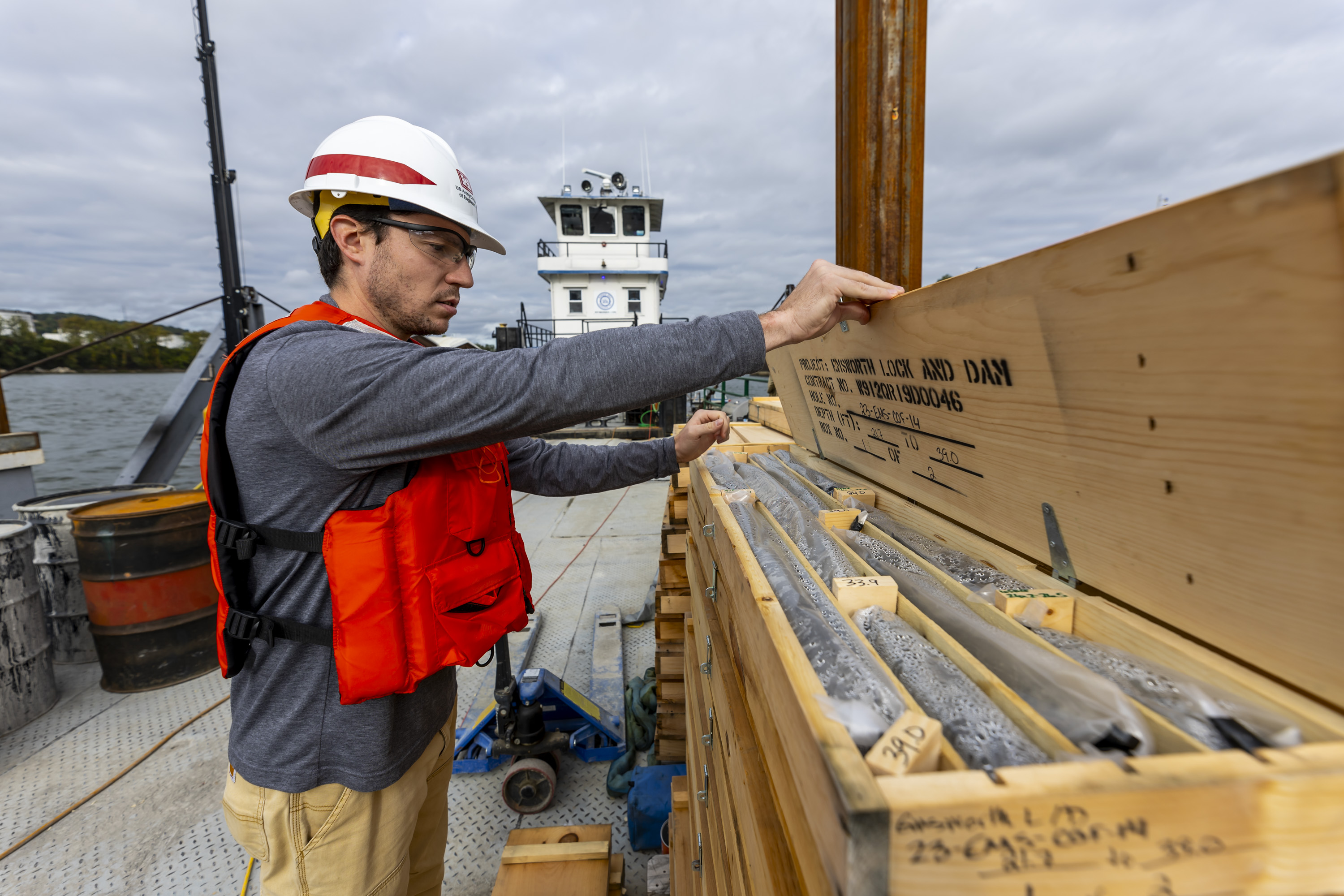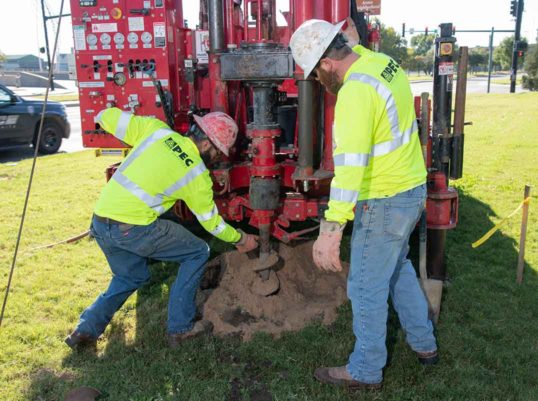Geotechnical Engineering in South Africa: Comprehensive Providers for Construction and Development
Geotechnical Engineering in South Africa: Comprehensive Providers for Construction and Development
Blog Article
A Thorough Overview of the Secret Solutions Offered by Consulting Civil Engineering Professionals in Modern Building
Consulting civil engineering professionals are important to the success of contemporary building and construction projects, offering a complex collection of solutions that address numerous obstacles. From conducting comprehensive website analyses and expediency research studies to ensuring compliance with stringent governing structures, these specialists lay the foundation for sustainable and risk-free growth. Their knowledge includes structural design and task management, which are critical for achieving cost-efficient and timely results. As the intricacy of building projects remains to evolve, understanding the complete spectrum of solutions they give comes to be progressively important for stakeholders. What implications does this have for the future of building practices?
Website Assessment and Expediency Studies
When beginning on any kind of building task, understanding the site's characteristics is critical, as it directly influences the expediency and style of the development. Website assessment and usefulness studies are necessary parts of the pre-construction stage, enabling stakeholders to make enlightened decisions. These research studies entail an extensive analysis of the physical, ecological, and regulatory elements of the website.

By integrating these aspects, civil engineering specialists can give a holistic view of the site's feasibility for the intended development. Ultimately, comprehensive website assessments and feasibility research studies lay the foundation for effective project execution, optimizing and reducing dangers source allocation.
Structural Design and Analysis
Following a comprehensive site evaluation and expediency research, the next crucial phase in the construction process is architectural layout and evaluation. This vital solution includes the development of structural systems that ensure the security, toughness, and financial feasibility of a project. Consulting civil designers make use of innovative techniques and software to assess loads, stresses, and product homes, making sure that styles comply with pertinent codes and requirements.
Architectural layout incorporates various aspects, including beam of lights, columns, foundations, and load-bearing walls. By applying concepts of auto mechanics and material science, engineers create frameworks that can hold up against ecological pressures such as wind, seismic activity, and snow lots. The analysis stage includes meticulous estimations to forecast the actions of these frameworks under different conditions, guaranteeing they can do as planned throughout their lifespan.
In addition, consulting designers work together very closely with designers and various other stakeholders to integrate architectural elements cosmetically and functionally. The deliverables commonly include in-depth drawings, specs, and thorough records that facilitate the building procedure. Ultimately, effective structural layout and analysis are crucial in minimizing dangers, maximizing sources, and accomplishing successful job results in modern building and construction.
Job Monitoring and Coordination
Effective task administration and control are crucial elements of successful civil engineering services, guaranteeing that construction jobs are supplied promptly, within spending plan, and to the needed high quality criteria. Consulting civil designers play a vital duty in coordinating various project elements, from first preparation via to project conclusion. This entails not only the technological facets of layout and construction however likewise the strategic monitoring of resources, timelines, and stakeholders.

Furthermore, civil engineering professionals emphasize the relevance of documentation and reporting throughout the job lifecycle - geotechnical engineering in south africa. By keeping exact records, they make certain transparency and accountability, which cultivates trust fund among all events entailed. Ultimately, skilled project management and sychronisation cause enhanced project results, straightening with customer expectations and adding to the overall success of the building venture
Regulatory Conformity and Permitting
Effective task administration lays the groundwork for addressing governing conformity and permitting needs in civil design tasks. Making certain adherence to neighborhood, state, and federal guidelines is essential for the effective execution and completion of any kind of building venture. Consulting civil design experts play a vital duty in browsing the complicated landscape of regulatory frameworks and permitting processes.
These professionals read this are fluent in zoning laws, developing codes, ecological laws, and safety and security requirements that regulate construction methods. They perform detailed evaluations to identify all relevant laws, making certain that jobs abide by needed lawful demands. By collaborating with governmental companies and stakeholders, consulting designers promote the allowing procedure, streamlining authorizations and decreasing hold-ups.
Additionally, they prepare and submit the requisite paperwork, such as site strategies, environmental influence assessments, and design reports. This aggressive method not just cultivates compliance yet also improves job expediency and sustainability. Inevitably, efficient regulatory compliance and allowing are necessary components of a successful civil design job, safeguarding both the atmosphere and public well-being while contributing to the overall stability and success of building and construction initiatives.
Sustainable Design Practices
Sustainable layout practices are significantly recognized as important elements in civil design, with an emphasis on reducing ecological impact while making best use of resource efficiency. These methods encompass a variety of methods targeted at promoting environmental equilibrium and decreasing the carbon footprint of building projects.
One key facet of sustainable design is the combination of renewable resource sources, such as solar and wind, into building styles. This not only decreases reliance on nonrenewable fuel sources however additionally boosts lasting price savings. In addition, making use of lasting products, consisting of recycled or quickly sustainable sources, plays a significant role in minimizing waste and preserving natural resources.
Water management strategies, such as rain harvesting and reliable watering systems, are additionally crucial in lasting layout. These methods aid in minimizing water usage and safeguarding local water ecological communities. Furthermore, eco delicate website planning makes sure marginal disturbance to the all-natural landscape and promotes biodiversity.
Consulting why not find out more civil engineering experts are important in applying these lasting design methods. Their expertise enables the execution of innovative remedies that line up with both regulative requirements and client goals, ultimately adding to a more sustainable built atmosphere.
Verdict
In summary, seeking go advice from civil engineering specialists supply important services that underpin the success of modern-day building and construction projects. Via careful website analyses, cutting-edge structural design, efficient job monitoring, adherence to regulative criteria, and the application of sustainable methods, these specialists add to the production of secure, reliable, and environmentally responsible developments. The assimilation of these vital solutions not only enhances task results but additionally promotes a lasting future in the building sector.
Reliable job management and control are crucial parts of successful civil engineering services, ensuring that building and construction tasks are delivered on time, within spending plan, and to the needed high quality criteria. Consulting civil engineers play an important function in orchestrating numerous project elements, from first planning with to project completion. Inevitably, efficient project administration and control lead to enhanced task end results, straightening with client expectations and contributing to the overall success of the building undertaking.

Report this page